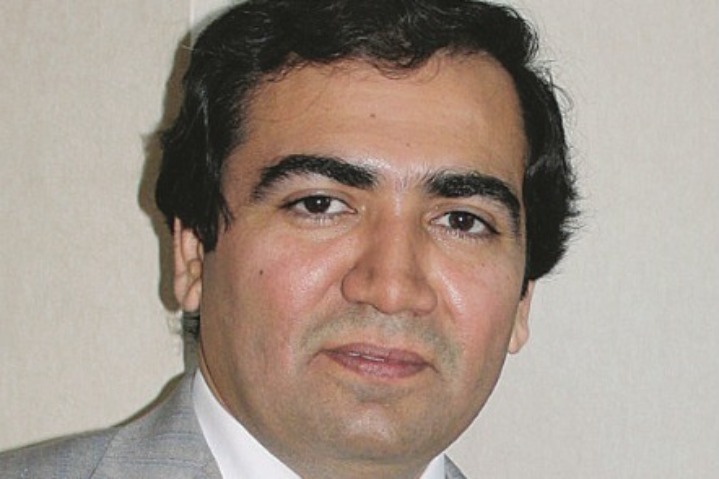Bike taxis kickstarted an empire

He may be small in stature with a slim build, but Nadiem Makarim stands out in the business world as the head of one of Southeast Asia's seven unicorns — startups with billion-dollar valuations.
The 33-year-old is CEO and founder of Go-Jek, Indonesia's leading multi-platform technology group, which is currently valued at $2.5 billion and has a presence in 50 cities across the country. It provides access to a wide range of services across 18 verticals, from transportation and logistics to payments and food delivery.
The company is best known, however, for its motorcycle taxi service — known locally as ojek. It launched in Jakarta in January 2015 with a pool of 700 riders, but today the number has burgeoned to more than 400,000 nationwide.
Survival and expansion are two challenges most startups face. Makarim has helped the company overcome both and go on to bigger things.
Not that he will admit it, though. "We've barely started to scratch the surface of what Go-Jek can be. It's always day zero."
But if he had to break it down, he would attribute the company's success to the decision to use two-wheelers early on.
Tackling traffic congestion in Jakarta is so challenging that effective solutions can spread like wildfire. Motorcycles are also significantly cheaper than cars, which makes the addressable market bigger.
Drivers who signed up with Go-Ride, Go-Jek's motorcycle taxi service, were given jackets featuring the company's logo — so through guerrilla marketing, the word spread quickly.
"Within the first half of 2015, we were running out of drivers because we were growing so fast. We had to book a soccer stadium to do mass recruitment and interviews," said Makarim.
"We started at 1,000 transactions a day, with a target of 10,000. By the end of 2015, we had hit a few hundred thousand a day — it took off exponentially," he said.
At the same time, Go-Jek tripled the number of ojeks on the roads, cut the fare price by one-third and doubled the income of each driver.
"This wonderful win-win-win situation arises when a piece of technology creates efficiency in the marketplace. Even though the fares were so much cheaper, the drivers were working all day now."
Expansion soon followed. Launching alongside Go-Ride was a courier service.
From there, the company realized that 90 percent of items being delivered were food, so Go-Food debuted very quickly in mid-2015.
"Indonesians are massive foodies; we like to eat food from outside. Go-Jek grew the delivery market 10 times easily," he said.
Today, the tech company is considered Indonesia's national champion in the digital space.
Makarim drew a comparison with Chinese companies, likening Go-Jek to a combination of mobile payment platform WeChat Pay, ride-sharing company Didi Chuxing, group-buying site Meituan and delivery platform Dada.
"Ojek is a very Indonesian term and tradition. The fact that we work in the informal sector adds even more power to what we do. We are empowering the bottom of the pyramid, which sets us in a positive light in the market."
In fact, 85 percent of Go-Food transactions come from street food stalls that typically have "really good food but no access to the market".
Makarim is propelled by a strong sense of national pride to improve his country.
"We get frustrated at things that don't work efficiently or aren't a great user experience. If something is really broken for the customer, we fix it."
He is also a big believer in instilling authenticity and honesty in his company culture. "When faced with a problem, we confront it head on, are open and transparent. We encourage people to stand up for what they believe in."
Makarim attributes this mind-set to his parents, who raised him to understand that success is about more than just making money.
"I've been brainwashed to understand that whatever I do — whether it is a business or a nonprofit — it has to have an impact on Indonesia."
This was why he knew he had to tackle the crushing congestion and inadequate infrastructure in Jakarta.
Solving transportation woes aside, making a social impact is a major goal for Go-Jek. Makarim believes that technology is the fastest and most scalable way of empowering an economy. Go-Jek has also been able to provide employment, albeit indirectly.
"Imagine the potential for this liquid employment that anyone can come into as a buffer to the economy, in case the macro economy goes down and up. It helps a country manage that cyclicality."
Another way it is making an impact is through giving Indonesians financial and digital access with Go-Pay, its e-wallet service. "Sixty-five percent of the population is unbanked, 35 percent is under-banked," he said.
There are rumors that Chinese tech companies have invested in Go-Jek. But he keeps mum on that, preferring instead to talk about how he has learned from the failures and successes of the Chinese startup landscape.
For instance, he saw how difficult it is to defend a single vertical, since someone is bound to enter the market with more money or better technology.
"The most successful businesses in China are diverse and dominate a few verticals to protect their core base of users. We learned that and built a strategy around it, taking it to the extreme.
"WeChat invests in key apps within their ecosystem. We build and own each of those mega verticals, so no one can come in between. It's about defensibility."
Makarim advises the owners of budding startups to remember that the cyclicality of business is the only constant.
"There will always be ups and downs … The reason why people fail is because when on the up, they think it will keep going up. Then when things are going down, they think this is over and quit. You just need to ride the wave."
He admitted that neither he nor anyone else could predict Go-Jek reaching the levels of success that it has today.
"I did not expect 20 million monthly active and unique users. We're now processing 100 million transactions a month."
The key is getting users to transact more.
"We've learned that once you use three services a month and you're on Go-Pay, your retention rates go through the roof and you're a user for life. You'll notice the same with platforms in China. We have 18 services, so it's easy to hit three services a month."
Makarim, who was a speaker at November's Singapore FinTech Festival, said he has been overwhelmed by his encounters with high-profile entrepreneurs in Asia and around the world, especially in China.
"I'm like a fanboy getting to meet all these heroes, and it's an incredible privilege."


















